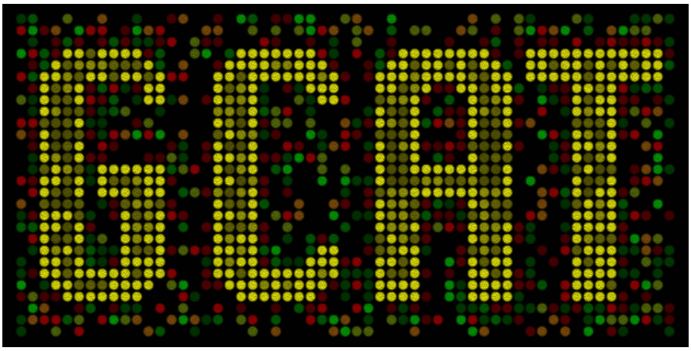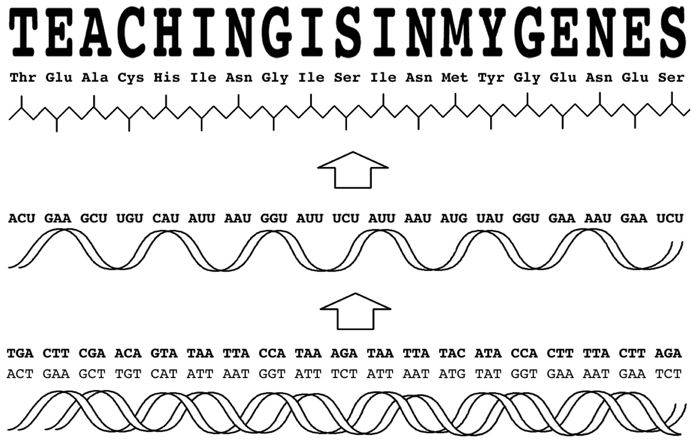 2011 GCAT
Synthetic Biology Workshop
2011 GCAT
Synthetic Biology Workshop
One Session; 15 pairs of faculty
June 16 - 18
Missouri Western State University, St. Joseph, MO
Description
Application
Schedule
Workshop Goals
-
Download Readings (zipped folder with PDF files)
-
Download
Daily Schedule (PDF file)
- Participant List (PDF)
- Download wet lab details (Word file)
-
Download Campus Maps (PPT file)
- Links to Protocols (Davidson and MWSU) and GCAT-alog
Only For Faculty at American Institutions
GCAT is
please to announce a new synthetic biology faculty workshop for the summer
of 2011 hosted by Missouri Western State University (MWSU). This workshop is funded by GCAT. You can learn
more about synthetic biology from GCAT. Since
its inception, GCAT has
encouraged faculty from Minority Serving Institutions (MSIs, such as HBCUs,
HSIs, TCUs, etc.) to attend its workshops. Also, faculty from underrepresented
minorities are also encouarged to participate in GCAT activities.
The goal of this workshop is to prepare 15 pairs of faculty to spend the
2011-12 academic year getting ready for undergraduate-lead research in
synthetic biology during the summer of 2012. We will train participants
how to do the wet lab methods and how to think differently to prepare for
synthetic biology. By the end of the workshop, we want each team to have
mapped out possible research projects and implementation plans.
Participants will NOT have to pay anything to attend with the possible
exception of some travel expenses (still working on this aspect of the budget:
what happens with the economy and fuel prices?).
The dates are:
Arrive in St. Joseph, MO Wed. June 15
Workshop all day Thursday and Friday June 16-17
Workshop until noon on Saturday June 18 and departure after that.
• Instructors will be Drs. Jeff Poet and
Laurie Heyer (mathematicians) as well as Todd Eckdahl and Malcolm
Campbell (biologists).
• 15 teams of two faculty members from 15 different schools
• Each team would be composed of a biologist and a non-biologist (chemist,
mathematician, computer scientist, perhaps biochemist if in different department,
etc.)
• Teams would apply no later than January 15, 2011 and be notified of their
selection before February 1, 2011.
• GCAT funds will pay for room and board on campus
in dorms with single rooms and shared bathrooms.
• Food at Commons which is really good cafeteria food.
• Lab supplies all provided free of charge. Computers will be available
but participants are encouraged to bring laptops if they can.
We hope that all 15 schools will have their students present their research
in the summer of 2012 at research venues to be discussed at the workshop.
A tentative schedule is attached.
Email applications to: Jeff Poet: poet@missouriwestern.edu
Put "GCAT Synthetic Biology Workshop" in the Subject line of the application e-mails. You will get a confirmation email when the application is received. If you do not get a confirmation, then contact Jeff Poet again.
APPLICATION RECEIPT DUE DATE: 5 pm eastern time, JANUARY 15, 2011.
GCAT does not have
quotas for workshop participation. We encourage all faculty to apply but we will
emphasize the potential impact for faculty who teach at MSIs, or those
faculty members who are themselves members of underrepresented groups.
Only For Faculty at American Institutions
Download Workshop Application |
|
|
Email Malcolm
Campbell with Questions
See photos from 2003
workshops
See photos from 2004 workshops
See photos from 2005 workshops
See photos from 2008 workshops
See photos
from 2009 workshops

This workshop is supported by GCAT. Much of the background
work was supported by a grant from the National Science
Foundation under Grant No.
DBI-0627478. Any opinions, findings, and conclusions
or recommendations expressed in this material are those of the author(s)
and do not necessarily reflect the views of the National Science Foundation
or HHMI.
Synthetic Biology Workshop June 2011
Tentative Schedule
Day 1 – June 16, 2011
7:00 – 8:15 Breakfast
8:30 Overview What is synthetic biology?
How is synthetic biology suited for multidisciplinary research with undergraduates?
What are the goals of the workshop?
9:30 Introduction of BioBrick assembly
scheme, Registry
Give assignment to participants
10:30 Break
11:00 Synthetic biology project examples
Presentations on medicine, energy, the environment, technology
12:00 Lunch
1:00 Explore the iGEM Wiki
Work as pairs of participants, describing past iGEM projects in area of
interest
2:00 Report iGEM project examples explored above (What makes
the above project “synthetic
biology”?)
3:00 Break
3:30 Wet lab work
Discuss methods for obtaining Registry parts or building new parts
Start PCR for building a new part
Use Oligo assembly web site
Pipet and boil oligos for assembly of new part
Evening Synthetic Biology research presentation based on MWSU and DC students
Day 2 – June 17, 2011
7:00 – 8:15 Breakfast
8:30 Reflections on previous day, feedback
on workshop so far and goals for Day 2
9:15 Birds of a Feather discussions – what
issues do you see at this point?
10:00 Discussion of ethical issues related
to synthetic biology
10:30 Break
11:00 Participant pairs work on their plans for synthetic biology
at their institution
Brainstorm area of focus, understand overlapping interests, project ideas
12:00
Lunch – Bioethicist will join us for lunch.
1:00 Discuss lab methods
and practices,
Wiki, GCAT-alog, sharing protocols online
2:00 Lab work
Load PCR products on gel
Ligate oligo assembly
Transform parts from mini-Registry and oligo assembly
Take gel pictures
3:20 Break
3:40 Work in pairs on topics for project presentation/discussion/
AMC, LH, TE, JP consulting
5:15 Announce topic of choice to whole group
(from which we create two groups for Day 3 report)
Evening Presentation
by NSF Program Officers
Day 3 – June 18, 2011
7:00 – 8:15 Breakfast
8:30 Observe colonies and discuss results
8:50 Group Photo and assessment
data collection
9:15 Divide into two groups based on participant project
topics
Allow 20 minutes for each pair for presentation/discussion/feedback
10:30
Short Break
12:00 Participants leave with optional box lunch
Short-Term Outcomes of GCAT Synthetic Biology Workshop
1)
Everyone will learn as much as possible. We will all have fun, and the participants
will begin a new phase in their teacher-scholar career.
2) Participants will learn some vocabulary and a new perspective that makes
synthetic biology distinct from genetics and molecular biology.
3) Interdisciplinary teams will explore an area of common interest and
investigate feasible projects for undergraduate research and possible course
development.
4) Participants will develop a strategy to recruit and support undergraduates
for research in synthetic biology.
5) Faculty from different departments will collaborate to find common ground,
mutual understandings from different perspectives, and a shared vision of
how to start a new research adventure.
Long-Term Outcomes of GCAT Synthetic Biology Workshop
1) Participants will
apply what they learn to develop an undergraduate research program in synthetic
biology.
2) Participants will assemble multidisciplinary teams consisting of at
least two faculty and two or more students from at least two different
majors.
3) Faculty from outside biology will utilize the methods they learned to
help design, construct, and test DNA-based devices as part of a synthetic
biology research project.
4) Biology faculty will learn the language and tools of the trade from
their partner’s discipline to a level of proficiency that they can help
design, construct, and test a model of the device as part of a synthetic
biology research project.
GCAT Home Page
Biology Home Page
© Copyright 2011 Department of Biology, Davidson College,
Send comments, questions, and suggestions to: macampbell@davidson.edu
 2011 GCAT
Synthetic Biology Workshop
2011 GCAT
Synthetic Biology Workshop
